- Structural support
- Supports dental health*
NOW Vitamin D-3 softgels supply this key vitamin in a highly-absorbable liquid softgel form. Vitamin D is normally obtained from the diet or produced by the skin from the ultraviolet energy of the sun. However, it is not abundant in food. As more people avoid sun exposure, Vitamin D supplementation becomes even more necessary to ensure that your body receives an adequate supply. NOW Vitamin D-3 helps to maintain strong bones.*
*These statements have not been evaluated by the Food and Drug Administration. These products are not intended to diagnose, treat, cure or prevent any disease.
NOW Vitamin D-3








































































































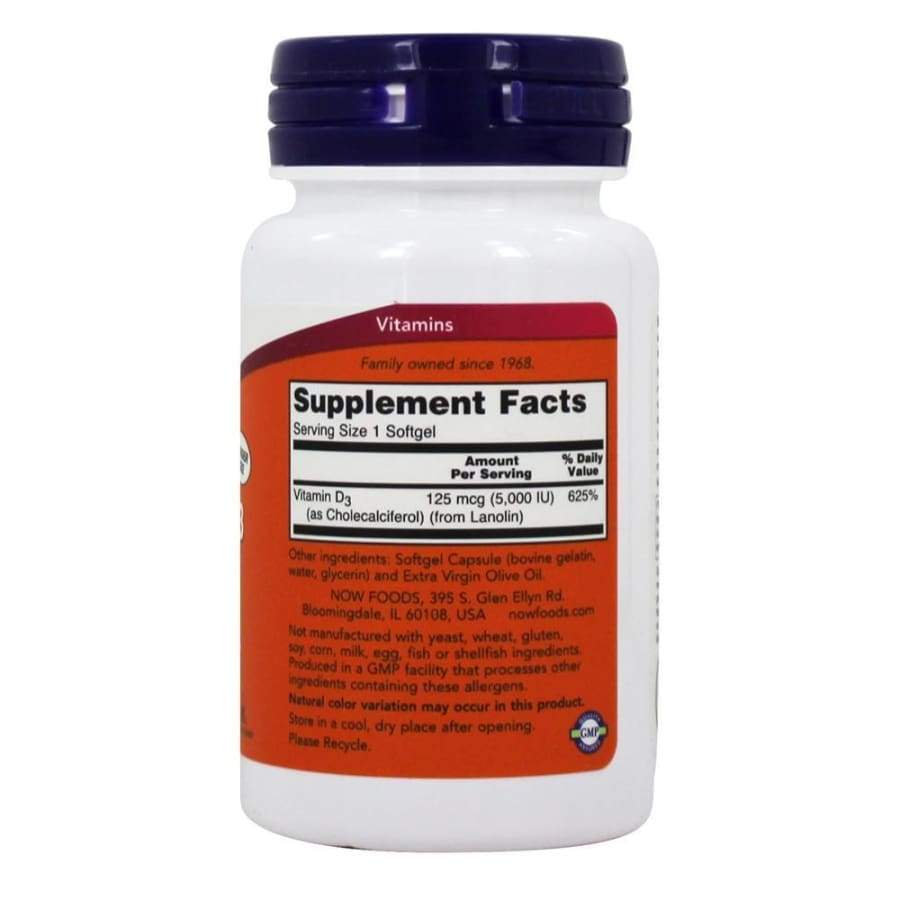
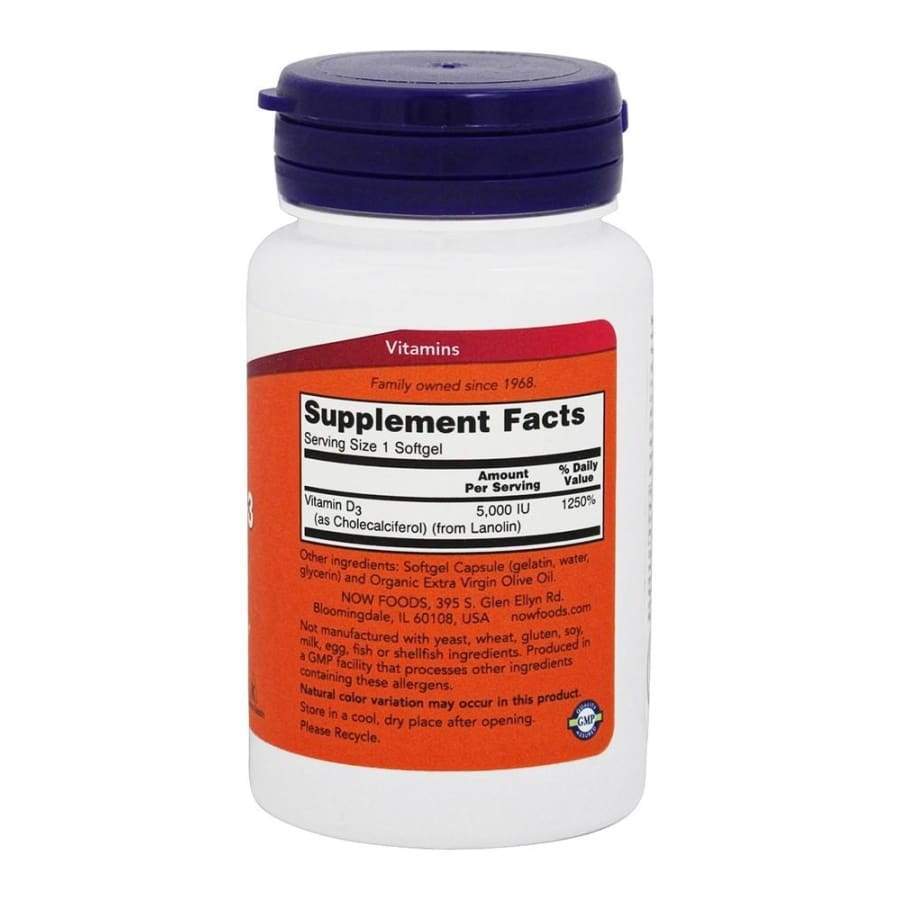
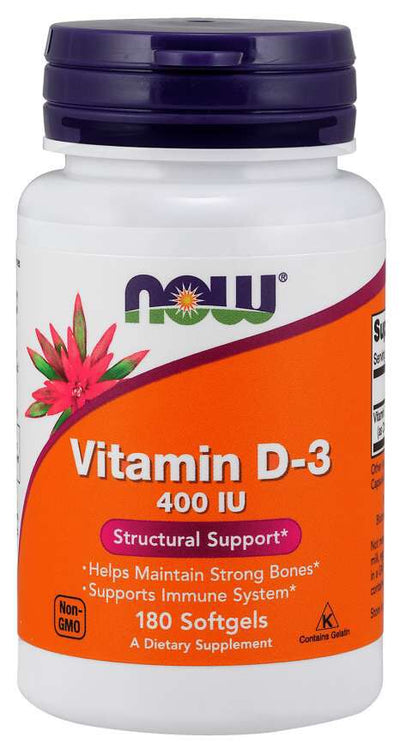
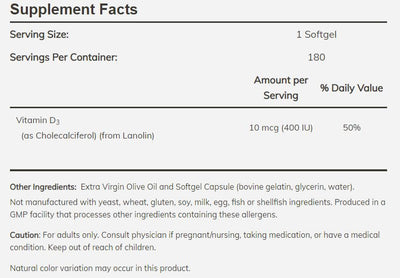
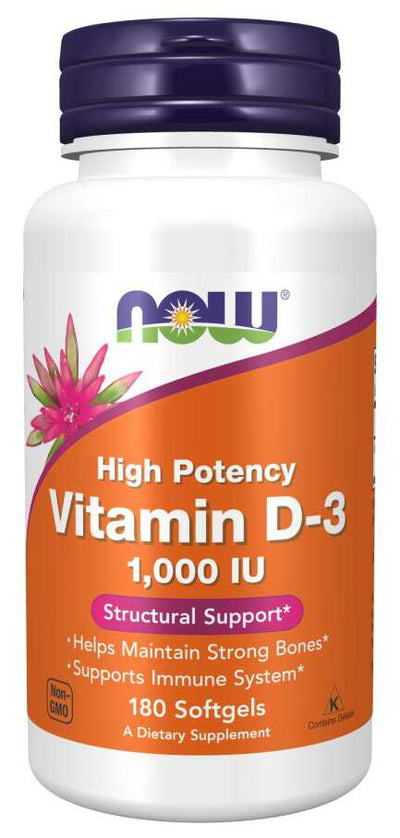
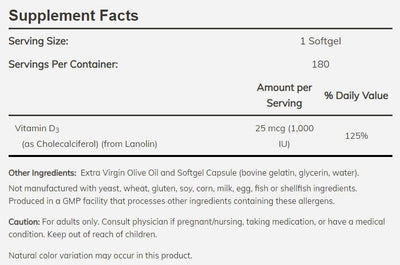
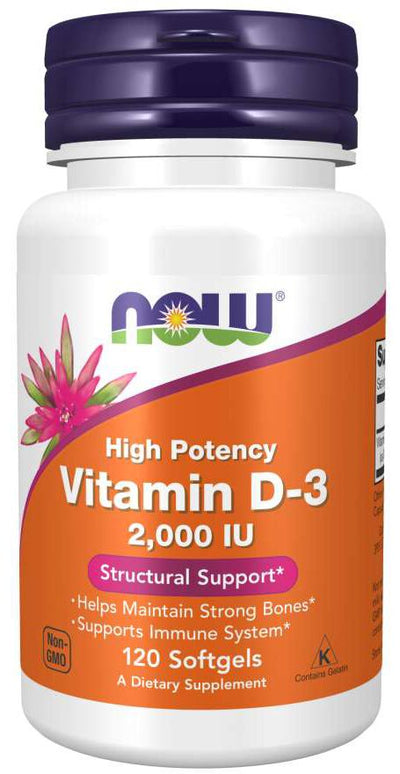
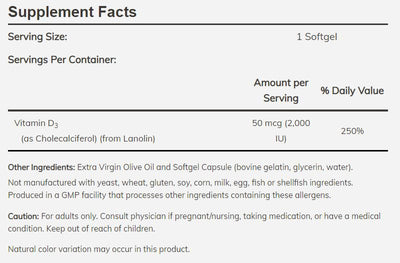
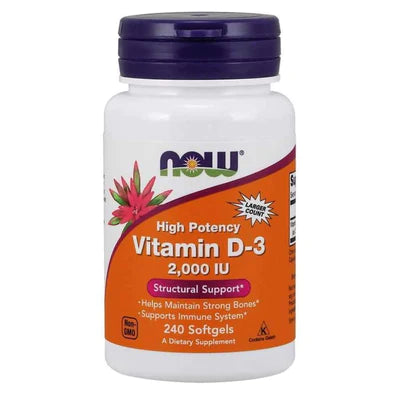
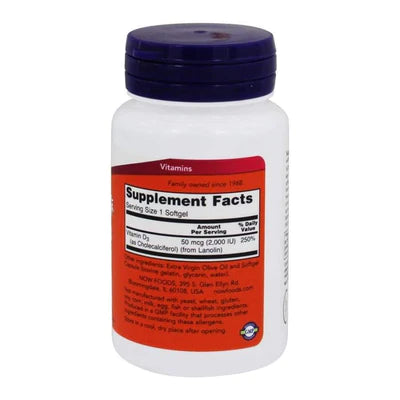
 FREE Shipping On Orders $99+
FREE Shipping On Orders $99+
 Over 200,000 Certified Reviewers
Over 200,000 Certified Reviewers
 Satisfaction Guarantee
Satisfaction Guarantee
 Best Customer Rewards Program
Best Customer Rewards Program
 Medical Grade Weight Loss Products
Medical Grade Weight Loss Products
 24/7/365 Real Live Customer Service
24/7/365 Real Live Customer Service
 Free Offers & Products On Orders $50+
Free Offers & Products On Orders $50+